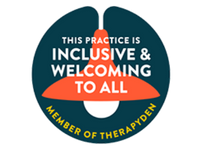- Reduce your caffeine intake
While an afternoon cup of coffee may feel necessary to get you through the second half of your day, it may be contributing to your anxiety. Caffeine can cause jitteriness, increase irritability, raise your heartrate, and lead to racing thoughts. These are all side effects which mimic, and therefore amplify, symptoms of anxiety. If you notice you are having trouble falling asleep at night due to anxious thoughts and excessive energy, take a look at how much caffeine you are consuming each day and see if there is any room to reduce it. Switching to decaf coffee or lowly-caffeinated teas may be a helpful alternative if you still need an afternoon pick-me-up.
- Move your body when you can
Although spending lengthy periods of time in front of the computer is now more commonplace than ever, this can make it easy for our minds to wander to topics that make us feel anxious and stressed. Getting up and moving your body, even in small increments, can help reduce blood pressure, reduce the presence of stress hormones, and provide your mind with the opportunity to focus on something other than the “what ifs” for a little while. Even if you don’t have the time for a full workout everyday, think about small changes you can make to increase your physical activity whenever possible.
- Practice mindfulness
Mindfulness is a buzzword used often these days, especially in regard to managing anxiety. But what exactly does it mean to be mindful? Mindfulness is the practice of being grounded in the present moment, focusing on what is currently happening within your mind, body, and surroundings, without judgment. This is an excellent tool to use for anxiety because not only does it calm your body, it helps you have awareness of your thoughts without being completely consumed by them. If you often find yourself ruminating about past mistakes or concerns for the future, redirecting your attention to the present moment can help you be part of your experience without feeling compelled to change or fix anything.
- Journal nightly
Journaling at the end of a long day can be a great way to allow your mind to process and put to rest all that happened during the day. Spending a few moments reflecting on the easiest and hardest parts of your day can help you assess what you appreciate about your life and what you want to change. Even just jotting down a list of all the things you have to do the next day can help you put those thoughts to rest for a little while, knowing you can simply refer back to the list the next day when it is actually time to address them. For best results, try using a physical journal or notebook so that you can practice closing it and putting it away before you proceed with the rest of your nightly routine, rather than simply typing it into your phone or computer.
- Step outside your comfort zone
Anxiety has a way of making your world small. That critical voice inside your head may tell you to be afraid of interacting with others, trying unfamiliar things, and just generally being vulnerable. You may be afraid of judgment, rejection, failure, or any number or other undesirable outcomes, which can cause you to avoid situations in which they may be the end result. The trouble with too much avoidance, however, is that it reinforces the idea that these things are scary and should be avoided. Challenging yourself to do things that are intimidating teaches your brain that not all fear-inducing situations are actually dangerous, which helps them feel less scary the next time you encounter them. Additionally, this can improve your self-confidence as you continue to practice conquering challenges that you may have once thought impossible.
– Heather Brown, ASW


